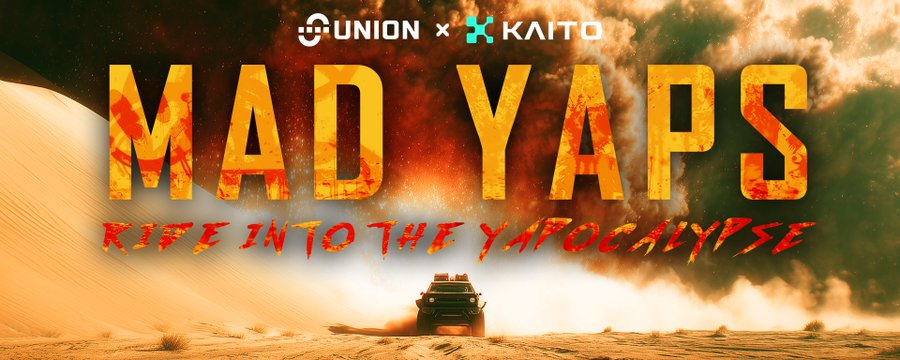Union: The Builder of the Web3 Credit Revolution
This time, let's talk about @union_build. I've been keeping an eye on this project for a while, and to be honest, it might be quietly building an underlying network that changes the credit mechanism of Web3, which is worth our attention.
So, what does Union do? To put it simply: decentralized credit infrastructure. It aims to turn our on-chain and off-chain behaviors into combinable, verifiable, and inheritable "identity + reputation + credit" assets, allowing us to have a "portable credit profile" in any Web3 scenario—whether it's lending, staking, voting, or working.
Don't underestimate this logic; one of the biggest problems in Web3 right now is that each chain is an island, and each wallet has no history, making people like temporary tourists. You build a reputation in Project A, but when you go to Project B, you have nothing. Union aims to completely solve this problem, allowing reputation, obligations, and risks to flow, recognize, and reuse across the entire Web3 world.
🚀 So how does Union do it?
They focus on three core components:
Credit Main Protocol (Union Protocol): Used to issue and verify "credit certificates"; for example, if you have a good repayment record on a lending platform, you can generate a credit NFT that can be referenced by other protocols;
Guarantee Network (Delegated Stake Network): You can guarantee others' actions, and the system scores you based on historical behavior. If the guarantor defaults, you will also be affected. It's similar to an "acquaintance guarantee system" on-chain;
Composable Identity: Packages DID, behavioral data, social relationships, asset flows, etc., into a credit graph that can be recognized by smart contracts and shared across multiple protocols.
🔍 How does Lao Cha understand the significance of Union?
In Web3, it's often said that "no trust means freedom," but we also know that **true trust doesn't mean no rules; it means having verifiable and traceable rules. Union brings back the dimension of "people," turning on-chain behavior into a form of capital—reputation capital.
Moreover, it doesn't just stop at identity verification; it's building a network layer of "composable credit." In the future, if you have a high success rate on Uniswap, you might be able to borrow directly from Aave or use it for work, voting, or as a guarantor. This is much deeper than the "on-chain score" system; it's about unlocking the "monetization of trust" in Web3.
💥 What about project progress?
Union has already launched its Alpha network and is conducting integration pilots with several protocols, such as:
Aave: Exploring credit-backed lending mechanisms;
Sismo, Gitcoin Passport: Aggregating reputation data;
Zora, Lens Protocol: Linking social behavior with reputation.
Their token $UNION has not yet officially launched, but the code, documentation, and mechanisms are all open-source, receiving positive feedback in the on-chain developer community. The team background comes from well-known institutions like Compound, Consensys, and Square.
We often say that the next stage of Web3 is the human stage, and Union is precisely helping each of us turn "on-chain behavior" into "on-chain credit"—a core piece of the puzzle. After data assetization, the assetization of reputation is the next big trend.
Whoever can establish this cross-chain composable credit layer first may hold the key to the next generation of social, lending, and identity governance in Web3. Lao Cha will continue to monitor this project and also suggests you not miss the opportunity before it takes off.
Show original
15.88K
87
The content on this page is provided by third parties. Unless otherwise stated, OKX is not the author of the cited article(s) and does not claim any copyright in the materials. The content is provided for informational purposes only and does not represent the views of OKX. It is not intended to be an endorsement of any kind and should not be considered investment advice or a solicitation to buy or sell digital assets. To the extent generative AI is utilized to provide summaries or other information, such AI generated content may be inaccurate or inconsistent. Please read the linked article for more details and information. OKX is not responsible for content hosted on third party sites. Digital asset holdings, including stablecoins and NFTs, involve a high degree of risk and can fluctuate greatly. You should carefully consider whether trading or holding digital assets is suitable for you in light of your financial condition.

